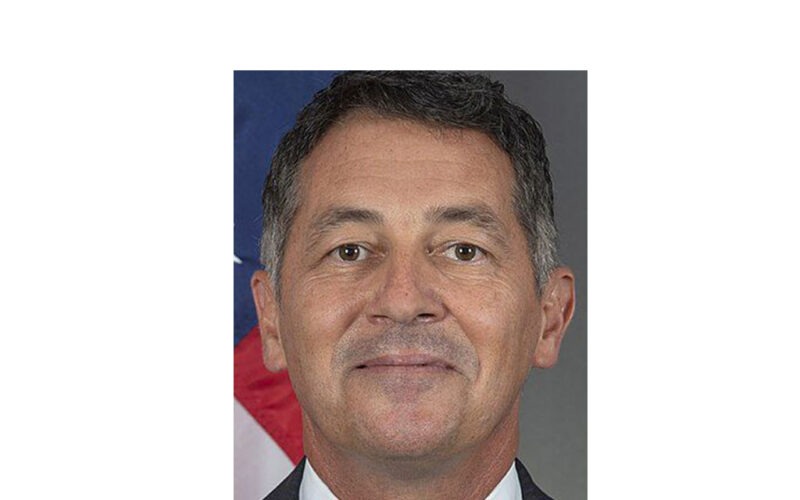Staff Writer
UNITED States (US) Ambassador to Namibia Randy Berry visited Tsumkwe from August 2 to 4 to meet with community leaders, students, conservation actors, and health care professionals.
During his two-day visit, Ambassador Berry paid a courtesy visit to the Mangetti Dune Health Centre and met with the nurse-in-charge and tuberculosis (TB) field promoter.
The nurse described the HIV/TB services provided at the location thanks to funding from the President’s Emergency Plan for AIDS Relief (PEPFAR) administered by the Centers for Disease Control and Prevention (CDC) as a vital tool for saving lives.
PEPFAR assists the health centre by collaborating with the Ministry of Health and Social Services to deliver comprehensive HIV and TB prevention and treatment services.
The nurse told the Ambassador of the many obstacles the community face in relation to obtaining healthcare services such as walking great distances between towns and health institutions, as well as transportation issues.
Ambassador Berry also visited the Tsumkwe Secondary School, where he met with grade 11 students.
He provided an overview of the efforts of the US Embassy in Namibia, including enhancing bilateral relations through increased free trade and investment to create an inclusive Namibian economy, enabling a rules-based democracy, and unlocking Namibia’s human potential through health and education.
He also discussed the many options provided by the Embassy and encouraged students to strive for greatness in their educational journey.
Ambassador Berry paid a courtesy call on Tsamkxao Oma Bobo, Chief of Ju’/hoansi Traditional Authority.
During their meetings, Chief Bobo emphasised his community’s dual concerns of great poverty and a lack of education.
According to Ambassador Berry, he is willingness to help tackle the difficulties raised by Chief Bobo by attempting to attract more US investment, which will expedite broad-based economic development in his town and throughout Namibia.
Ambassador Berry also paid a visit to the Tsumkwe Clinic Integrated Food Systems Project, a World Food Program (WFP)-funded project that aims to build an integrated community-based food system surrounding the clinic.
The purpose of the project is to empower community small-scale agriculture, providing for better nutrition and economic opportunity.
He also witnessed economic and community development in work in communities beyond Tsumkwe town, where ambitious farmers grow and sell higher-value products such as papaya and dried devil’s claw gathered in the area.
These activities, funded by the Nyae Nyae Development Foundation Namibia (NNDFN), aim to empower communities in and around Tsumkwe to improve their economic and social well-being.
Ambassador Berry wrapped up his day with a visit to the Nyae Nyae Conservancy and Community Forest (NNCCF).
The NNCCF is a community-based organisation in charge of natural resource management in the Nyae Nyae area.
During their conversations, the leadership emphasised how conservation offers much-needed revenue for the constituency through conservation hunting, tourism, crafts, and agriculture – primarily through the commercial collection of the devil’s claw.
Conservation actors agreed, however, that while conservation is viewed as the economic driver for the Tsumkwe community, the area still suffers serious economic and social issues due, in part, to its isolated position and arid climate.
“The trip provided valuable insights into the realities of life in a remote corner of Namibia, which is rich in natural and cultural heritage,” Ambassador Berry said when asked about his trip.
The visit’s information will assist target US initiatives and efforts to react to real-world needs.”




